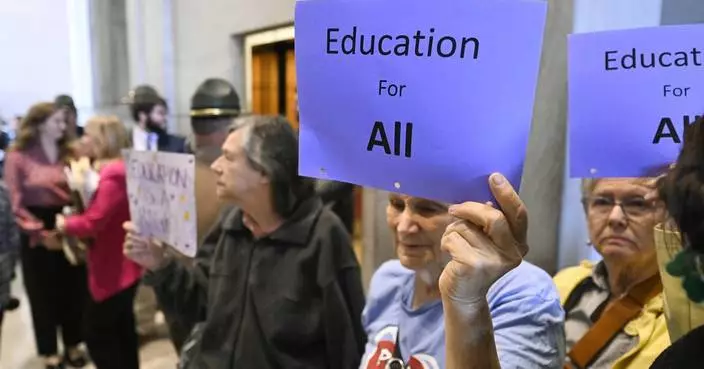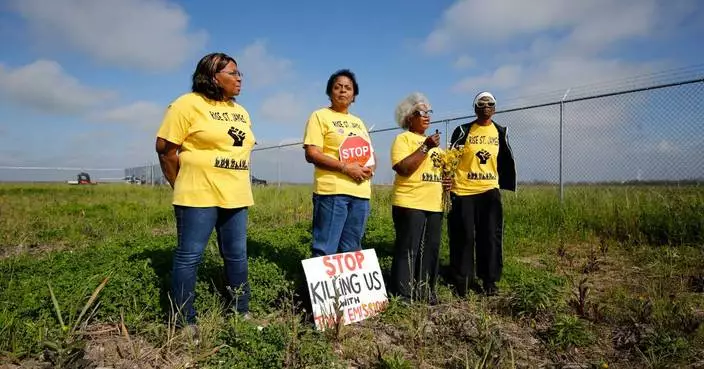ORLANDO, Fla. (AP) — For the first time in 27 years, the U.S. government is changing how it categorizes people by race and ethnicity, an effort that federal officials believe will more accurately count residents who identify as Hispanic and of Middle Eastern and North African heritage.
The revisions to the minimum categories on race and ethnicity, announced Thursday by the Office of Management and Budget, are the latest effort to label and define the people of the United States. This evolving process often reflects changes in social attitudes and immigration, as well as a wish for people in an increasingly diverse society to see themselves in the numbers produced by the federal government.
Click to Gallery
FILE - Workers at ACCESS, the Arab Community Center for Economic and Social Services, help with meals for the Arab community in Dearborn, Mich., May 1, 2020. For the first time in 27 years, the U.S. government on Thursday, March 28, 2024, changed how it categorizes people by race and ethnicity, an effort that federal officials believe will more accurately count residents who identify as Hispanic and of Middle Eastern and North African heritage. (AP Photo/Carlos Osorio, File)
FILE - Workers at ACCESS, the Arab Community Center for Economic and Social Services, help with meals for the Arab community in Dearborn, Mich., May 1, 2020. For the first time in 27 years, the U.S. government on Thursday, March 28, 2024, changed how it categorizes people by race and ethnicity, an effort that federal officials believe will more accurately count residents who identify as Hispanic and of Middle Eastern and North African heritage. (AP Photo/Carlos Osorio, File)
FILE - An envelope containing a 2020 census letter mailed to a U.S. resident is seen, April 5, 2020, in Detroit. For the first time in 27 years, the U.S. government on Thursday, March 28, 2024, changed how it categorizes people by race and ethnicity, an effort that federal officials believe will more accurately count residents who identify as Hispanic and of Middle Eastern and North African heritage. (AP Photo/Paul Sancya, File)
Florida state Rep. Anna Eskamani poses in her office Wednesday, March 27, 2024, in Orlando, Fla. For the first time in 27 years, the U.S. government is announcing changes to how it categorizes people by race and ethnicity. "It feels good to be seen," said Eskamani, whose parents are from Iran. (AP Photo/John Raoux)
Florida state Rep. Anna Eskamani smiles in her office Wednesday, March 27, 2024, in Orlando, Fla. For the first time in 27 years, the U.S. government is announcing changes to how it categorizes people by race and ethnicity. "It feels good to be seen," said Eskamani, whose parents are from Iran. (AP Photo/John Raoux)
Florida state Rep. Anna Eskamani works in her office Wednesday, March 27, 2024, in Orlando, Fla. For the first time in 27 years, the U.S. government is announcing changes to how it categorizes people by race and ethnicity. "It feels good to be seen," said Eskamani, whose parents are from Iran. (AP Photo/John Raoux) embargoed until 8:45 am tomorrow
Florida state Rep. Anna Eskamani poses out front of her office Wednesday, March 27, 2024, in Orlando, Fla. For the first time in 27 years, the U.S. government is announcing changes to how it categorizes people by race and ethnicity. "It feels good to be seen," said Eskamani, whose parents are from Iran. (AP Photo/John Raoux)
“You can’t underestimate the emotional impact this has on people,” said Meeta Anand, senior director for Census & Data Equity at The Leadership Conference on Civil and Human Rights. “It’s how we conceive ourselves as a society. ... You are seeing a desire for people to want to self-identify and be reflected in data so they can tell their own stories."
Under the revisions, questions about race and ethnicity that previously were asked separately on forms will be combined into a single question. That will give respondents the option to pick multiple categories at the same time, such as “Black,” “American Indian” and “Hispanic.” Research has shown that large numbers of Hispanic people aren't sure how to answer the race question when that question is asked separately because they understand race and ethnicity to be similar and they often pick “some other race" or do not answer the question.
A Middle Eastern and North African category will be added to the choices available for questions about race and ethnicity. People descended from places such as Lebanon, Iran, Egypt and Syria had been encouraged to identify as white, but now will have the option of identifying themselves in the new group. Results from the 2020 census, which asked respondents to elaborate on their backgrounds, suggest that 3.5 million residents identify as Middle Eastern and North African.
“It feels good to be seen," said Florida state Rep. Anna Eskamani, a Democrat from Orlando whose parents are from Iran. "Growing up, my family would check the ‘white’ box because we didn’t know what other box reflected our family. Having representation like that, it feels meaningful.”
The changes also strike from federal forms the words “Negro” and “Far East,” now widely regarded as pejorative, as well as the terms “majority” and “minority,” because they fail to reflect the nation’s complex racial and ethnic diversity, some officials say. The revisions also encourage the collection of detailed race and ethnicity data beyond the minimum standards, such as “Haitian” or “Jamaican” for someone who checks “Black."
Grouping together people of different backgrounds into a single race and ethnicity category, such as Japanese and Filipino in the Asian classification, often masks disparities in income or health, and advocates argued having the detailed data will allow the information about the subgroups to be separated out in a process called disaggregation.
“To be able to disaggregate can really be helpful to distinguish different kinds of discrimination, the ability to enforce laws around discrimination and do research on public health and economic outcomes,” said Allison Plyer, chief demographer of The Data Center in New Orleans.
The changes to the standards were hammered out over two years by a group of federal statisticians and bureaucrats who prefer to stay above the political fray. But the revisions have long-term implications for legislative redistricting, civil rights laws, health statistics, and possibly even politics as the number of people categorized as white is reduced.
Donald Trump, the presumptive GOP nominee for president, recently alluded to arguments made by people who allege Democrats are promoting illegal immigration to weaken the power of white people. As president, Trump unsuccessfully tried to disqualify people who were in the United States illegally from being included in the 2020 census.
Momentum for changing the race and ethnicity categories grew during the Obama administration in the mid-2010s, but was halted after Trump became president in 2017. It was revived after Democratic President Joe Biden took office in 2021.
The changes will be reflected in data collection, forms, surveys and the once-a-decade census questionnaires put out by the federal government, as well as in state governments and the private sector because businesses, universities and other groups usually follow Washington's lead. Federal agencies have 18 months to submit a plan on how they will put the changes in place.
The first federal standards on race and ethnicity were produced in 1977 to provide consistent data across agencies and come up with figures that could help enforce civil rights laws. They were last updated in 1997 when five minimum race categories were delineated — American Indian or Alaska Native, Asian, Black or African American, Native Hawaiian or other Pacific Islander and white; respondents could pick more than one race. The minimum ethnic categories were grouped separately as not Hispanic or Hispanic or Latino.
Racial and ethnic categories used by the U.S. government reflect their times.
In 1820, the category “Free Colored People” was added to the decennial census to reflect the increase in free Black people. In 1850, the term “Mulatto” was added to the census to capture people of mixed heritage. American Indians were not explicitly counted in the census until 1860. Following years of immigration from China, “Chinese” was included in the 1870 census. There was not a formal question about Hispanic origin until the 1980 census.
Not everyone is on board with the latest revisions.
Some Afro Latinos feel that combining the race and ethnicity question will reduce their numbers and representation in the data, though previous research by the U.S. Census Bureau did not find significant differences among Afro Latino responses when the questions were asked separately or together.
Mozelle Ortiz, for instance, is of mixed Afro Puerto Rican descent. She feels the changes could eliminate that identity, even though people can choose more than one answer once the race and ethnicity questions are combined.
“My entire lineage, that of my Black Puerto Rican grandmother’s and all other non-white Spanish speaking peoples, will be erased,” Ortiz wrote the interagency group.
Others are unhappy about how some groups of people such as Armenians or Arabs from Sudan and Somalia were not included in the examples used to define people of Middle Eastern or North African background.
Maya Berry, executive director of the Arab American Institute, said that while she was “incredibly happy” with the new category, that enthusiasm was tempered by the omissions.
“It is not reflective of the racial diversity of our community," Berry said. “And it’s wrong.”
Follow Mike Schneider on X, formerly known as Twitter: @MikeSchneiderAP

FILE - Workers at ACCESS, the Arab Community Center for Economic and Social Services, help with meals for the Arab community in Dearborn, Mich., May 1, 2020. For the first time in 27 years, the U.S. government on Thursday, March 28, 2024, changed how it categorizes people by race and ethnicity, an effort that federal officials believe will more accurately count residents who identify as Hispanic and of Middle Eastern and North African heritage. (AP Photo/Carlos Osorio, File)
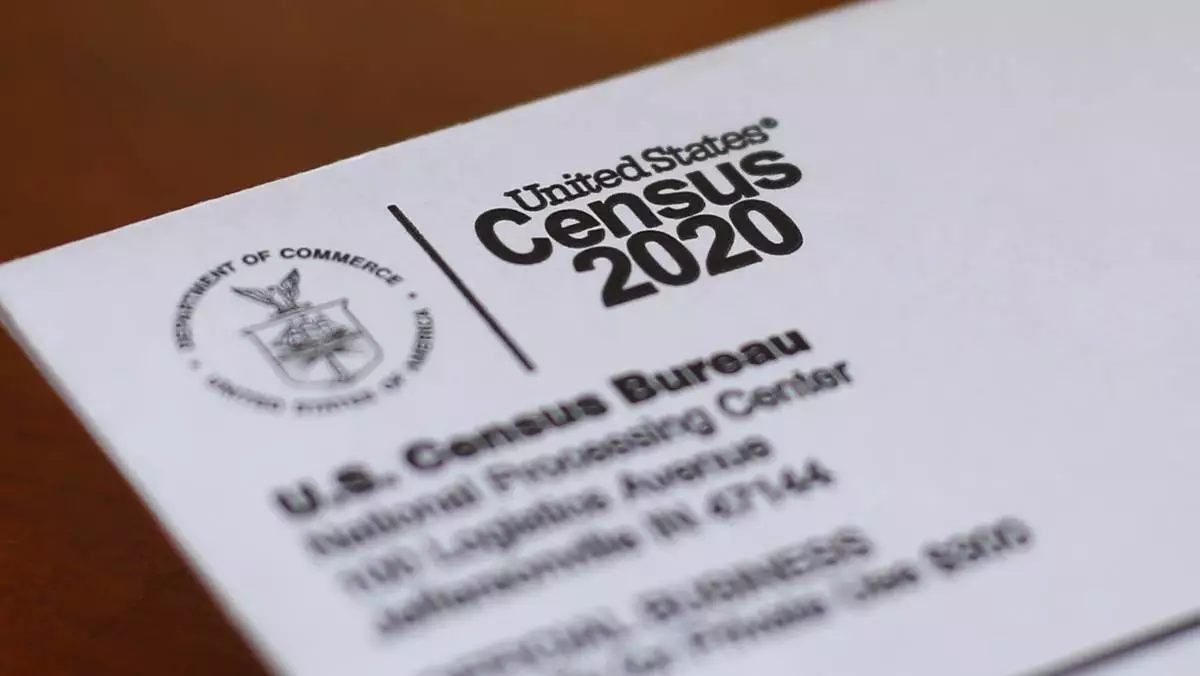
FILE - An envelope containing a 2020 census letter mailed to a U.S. resident is seen, April 5, 2020, in Detroit. For the first time in 27 years, the U.S. government on Thursday, March 28, 2024, changed how it categorizes people by race and ethnicity, an effort that federal officials believe will more accurately count residents who identify as Hispanic and of Middle Eastern and North African heritage. (AP Photo/Paul Sancya, File)
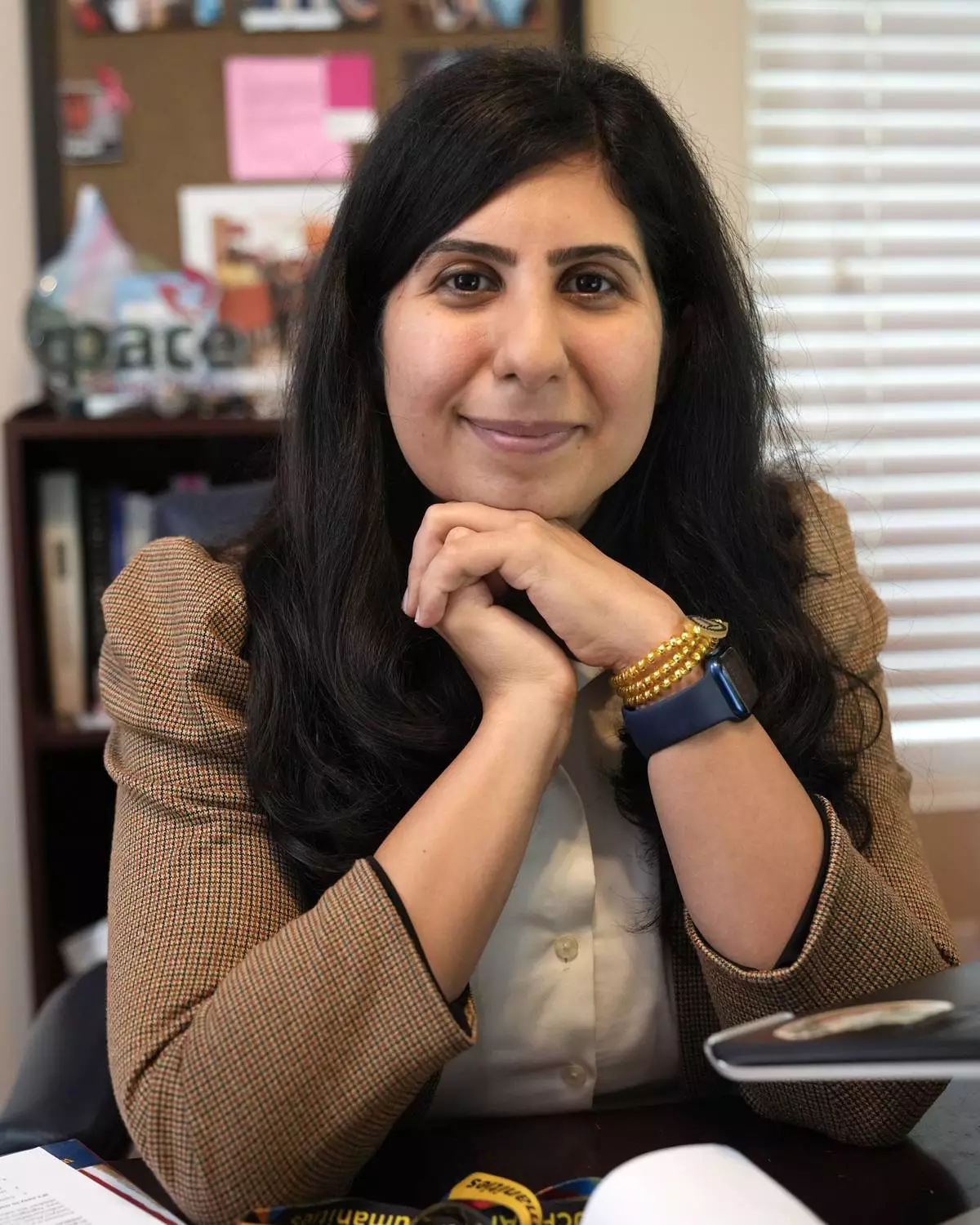
Florida state Rep. Anna Eskamani poses in her office Wednesday, March 27, 2024, in Orlando, Fla. For the first time in 27 years, the U.S. government is announcing changes to how it categorizes people by race and ethnicity. "It feels good to be seen," said Eskamani, whose parents are from Iran. (AP Photo/John Raoux)

Florida state Rep. Anna Eskamani smiles in her office Wednesday, March 27, 2024, in Orlando, Fla. For the first time in 27 years, the U.S. government is announcing changes to how it categorizes people by race and ethnicity. "It feels good to be seen," said Eskamani, whose parents are from Iran. (AP Photo/John Raoux)

Florida state Rep. Anna Eskamani works in her office Wednesday, March 27, 2024, in Orlando, Fla. For the first time in 27 years, the U.S. government is announcing changes to how it categorizes people by race and ethnicity. "It feels good to be seen," said Eskamani, whose parents are from Iran. (AP Photo/John Raoux) embargoed until 8:45 am tomorrow

Florida state Rep. Anna Eskamani poses out front of her office Wednesday, March 27, 2024, in Orlando, Fla. For the first time in 27 years, the U.S. government is announcing changes to how it categorizes people by race and ethnicity. "It feels good to be seen," said Eskamani, whose parents are from Iran. (AP Photo/John Raoux)
TALLAHASSEE, Fla. (AP) — A new Kansas law and a Florida bill outline policies backed by abortion opponents that critics see as moves toward giving embryos and fetuses the same rights as the women carrying them.
The Kansas Legislature's Republican supermajorities on Thursday overrode Democratic Gov. Laura Kelly's veto of a bill to require that child support payments cover embryos and fetuses and to grant an income tax break for a pregnancy or stillbirth. In Florida, lawmakers are advancing a bill that would permit parents to seek civil damages for the wrongful death of an embryo or fetus.
Following the U.S. Supreme Court's overturning of Roe v. Wade, anti-abortion activists across the country are pushing measures to enshrine the rights of fetuses, with the ultimate goal of ending abortion nationwide. Lawmakers pitching the proposals describe them as support for new parents or vulnerable families.
“This bill is about being compassionate to pregnant women,” Kansas Republican state Rep. Susan Humphries said Thursday.
Pregnancy Justice, which advocates for pregnant people, found that as of last year, at least 17 states had laws on the books giving fetuses the rights of people in criminal or civil law. Also, in most states, including Florida and Kansas, a person can face criminal charges for causing the death of a fetus, other than through an abortion.
Georgia and Utah offer income tax breaks for fetuses, and Kansas will soon allow parents to claim an extra dependent child tax deduction on their personal income taxes for the year a child is born and a deduction for a stillbirth.
Also like Georgia, Kansas will start a divorced or single parent's obligation to pay child support “from the date of conception." Its new law takes effect July 1.
“It really is common sense, to provide support for women,” said Republican state Sen. Kellie Warren, a supporter of the Kansas measure.
The Texas Senate approved a child support proposal earlier this month, and lawmakers introduced proposals this year in Missouri, Montana, Pennsylvania and Virginia, according to an Associated Press analysis using the bill-tracking software Plural.
The bill advancing in Florida would allow parents to file lawsuits over the wrongful death of a embryo or fetus at any stage of pregnancy, and juries could award monetary damages for the wages a fetus would have earned, according to the bill's sponsor.
The bill has cleared the full House and was approved by its second Senate committee Thursday, though its third and final committee hearing has yet to be scheduled.
Florida is among six states that do not allow lawsuits over the wrongful death of a fetus, according to a legislative analysis. Kansas already has a law like the one Florida is considering.
In Florida, sponsoring Republican Sen. Erin Grall told her colleagues the measure “is not about abortion."
“It’s not a secret. Everybody in the room knows where I stand on life," Grall said. "To me this is about parity in our civil justice system.”
Critics see both the Florida and Kansas proposals as part of an effort to move from allowing states to ban abortion — as the U.S. Supreme Court did in its 2022 Dobbs decision — to outlawing abortion across the nation as a violation of a fetus' or embryo's constitutional rights.
Mary Ziegler, a University of California, Davis law professor who's published six books in the past 10 years on abortion law and the history of U.S. abortion policy, said this year's Florida measure aligns with a “pretty well-defined and very public playbook" to build a legal framework for a national abortion ban.
“It’s about setting a precedent for recognizing fetal rights in one context being used to recognize fetal rights constitutionally," she said.
Florida considered a similar wrongful death measure last year, but it failed amid concerns about an Alabama Supreme Court ruling that frozen embryos can be considered children under state law. In vitro fertilization services stopped in Alabama until that state's governor signed a law to protect them — a step taken in other GOP-controlled states.
Concerns about IVF services still linger among some lawmakers in the Florida state capital of Tallahassee, as well as among doctors and abortion rights advocates.
Democratic state Rep. Allison Tant took to the House floor to debate against the Florida bill, which she says “imperils” the fertility services that made her a mom.
“IVF pregnancies are inherently fragile and risky,” Tant said. “We are going to see lawsuits like we’ve never seen."
Reproductive rights advocates in Florida also worry that wrongful death lawsuits could target health care providers who offer abortions, family and friends who help a loved one obtain an abortion, or fertility clinics whose clients experience a miscarriage.
In Texas, a man filed a wrongful death lawsuit against three women he said helped his now-ex-wife obtain medication for an abortion, though he later settled the case.
Florida’s proposal specifies that it does not authorize a cause of action against a mother for the death of her unborn child, or against a health care worker if they provided “lawful” medical care.
Still, Republican Sen. Tom Leek voted against the bill in committee after raising concerns about the measure potentially “being weaponized against women who lose a child.”
The fear of legal action could push more OBGYNs to avoid taking on high-risk patients or stop practicing in Florida entirely, a lobbyist for a medical malpractice insurance company has argued.
“There is a serious concern that there are other motivations here behind this bill, specifically with respect to abortion, with respect to potentially IVF in the future,” said Democratic Sen. Tina Polsky. “This is setting a new base for future issues, for future liability, for future bans. And it’s incredibly concerning.”

Kansas state Rep. Barbara Ballard, left, D-Lawrence, and House Minority Leader Brandon Woodard, D-Lenexa, confer during a break in the House's debates over overriding Democratic Gov. Laura Kelly's vetoes, Thursday, April 10, 2025, at the Statehouse in Topeka, Ka (AP Photo/John Hanna) John
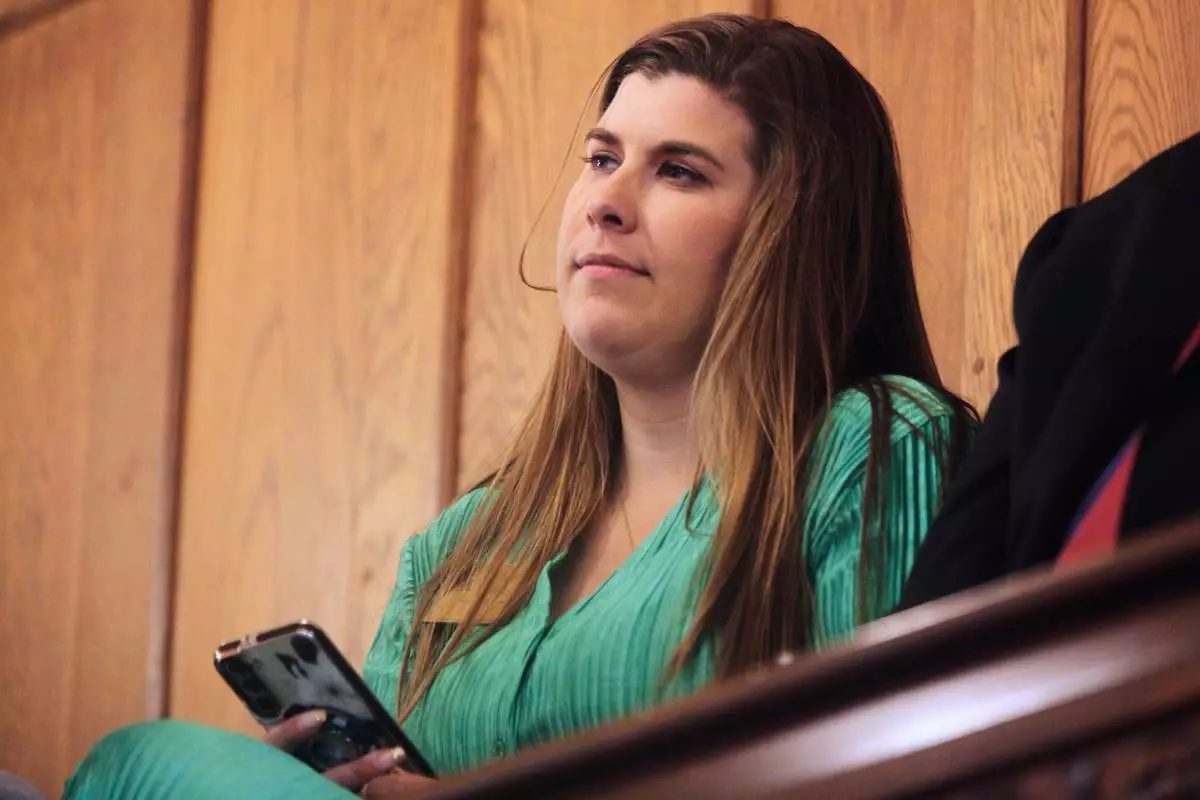
Brittany Jones, policy director for Kansas Family Voice, which opposes abortion, watches from the Senate gallery as Republicans vote to override Democratic Gov. Laura Kelly's veto of a bill granting an income tax break to parents for fetuses and embryos and requiring divorced or single parents to pay child support from conception, Thursday, April 10, 2025, at the Statehouse in Topeka, Kan. (AP Photo/John Hanna)
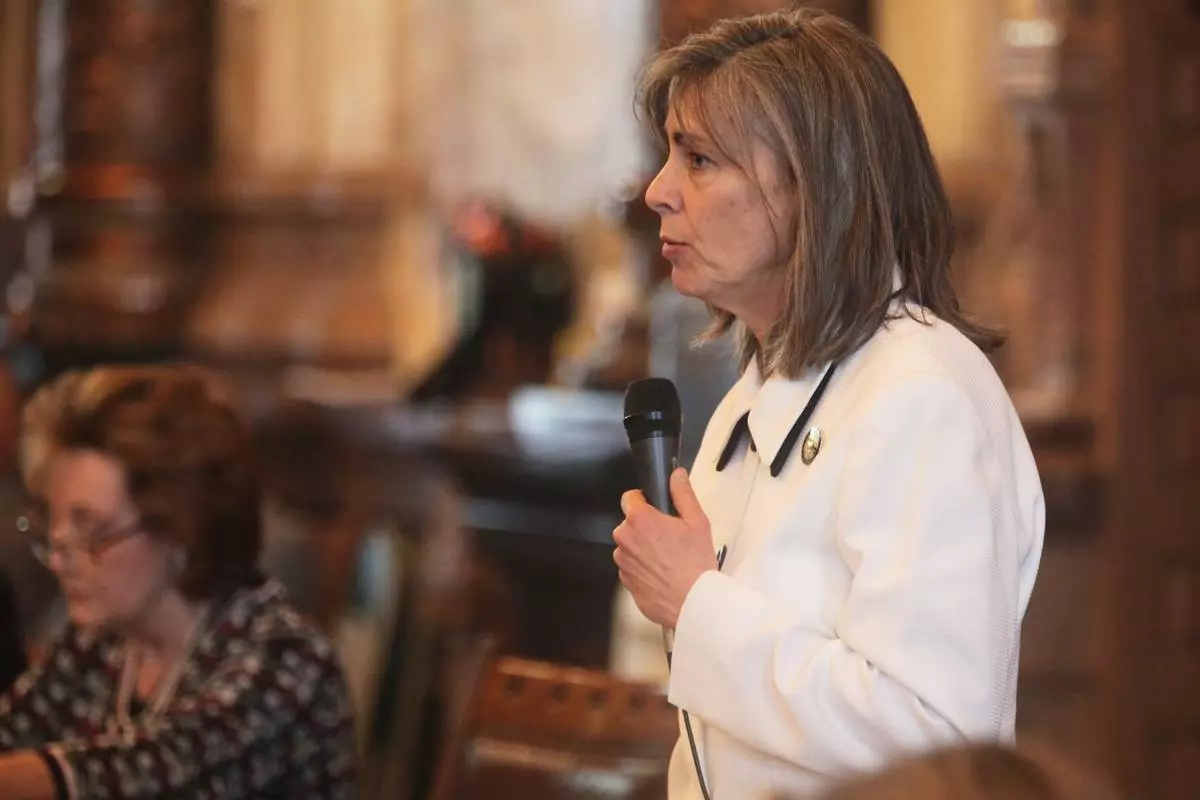
Kansas Senate Judiciary Committee Chair Kellie Warren, R-Leawood, speaks in favor of overriding Democratic Gov. Laura Kelly's veto of a bill that gives parents an income tax deduction for fetuses and embryos and requires a divorced or single parent's child support payments to begin at conception, Thursday, April 10, 2025, at the Statehouse in Topeka, Kan. (AP Photo/John Hanna)
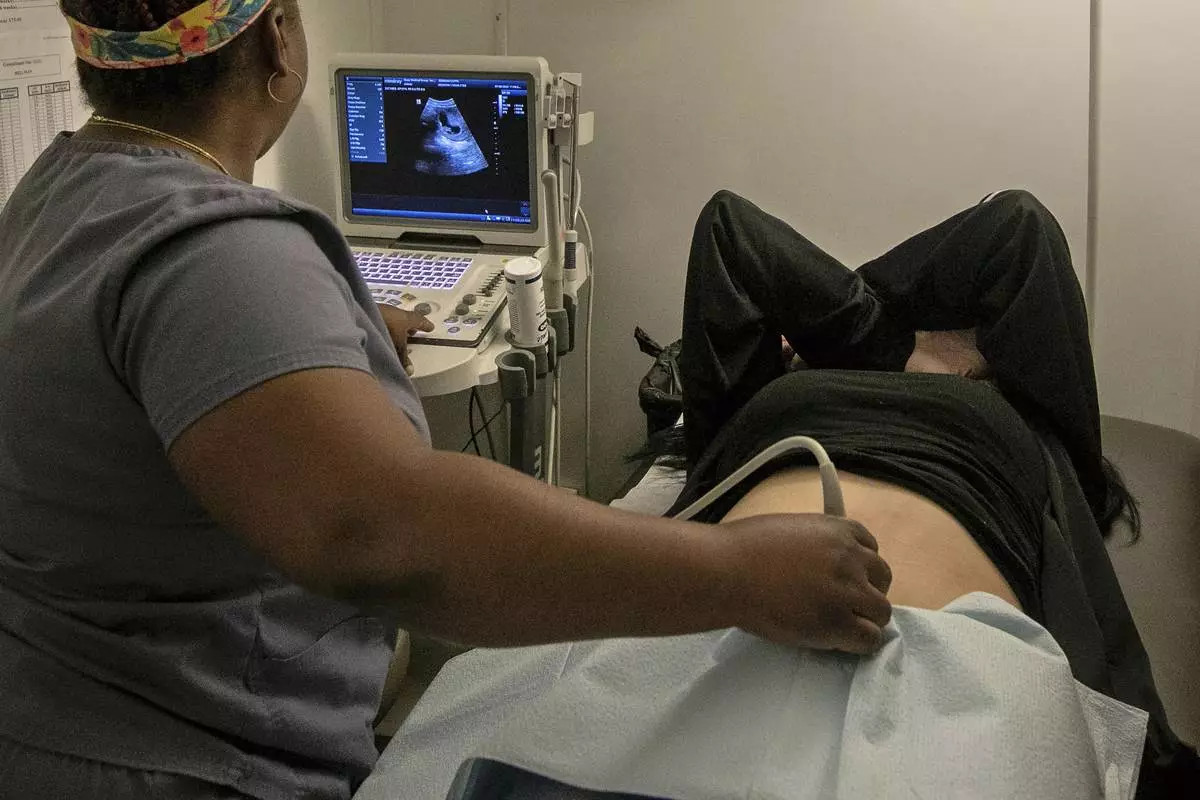
FILE - An operating room technician performs an ultrasound on a patient at an abortion clinic in Shreveport, La., July 6, 2022. (AP Photo/Ted Jackson, File)




















